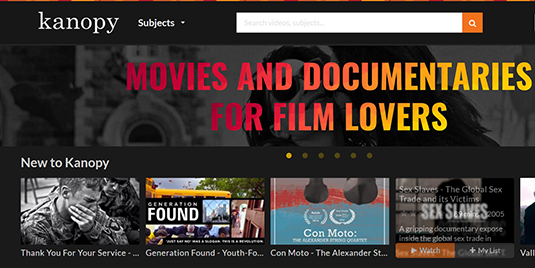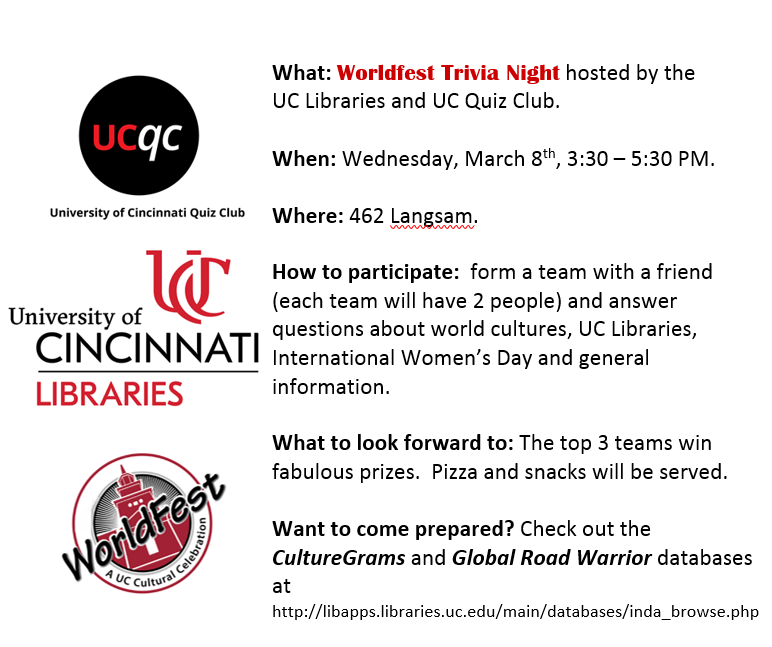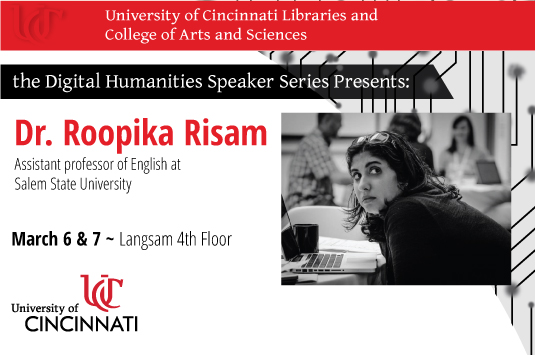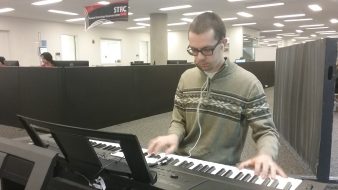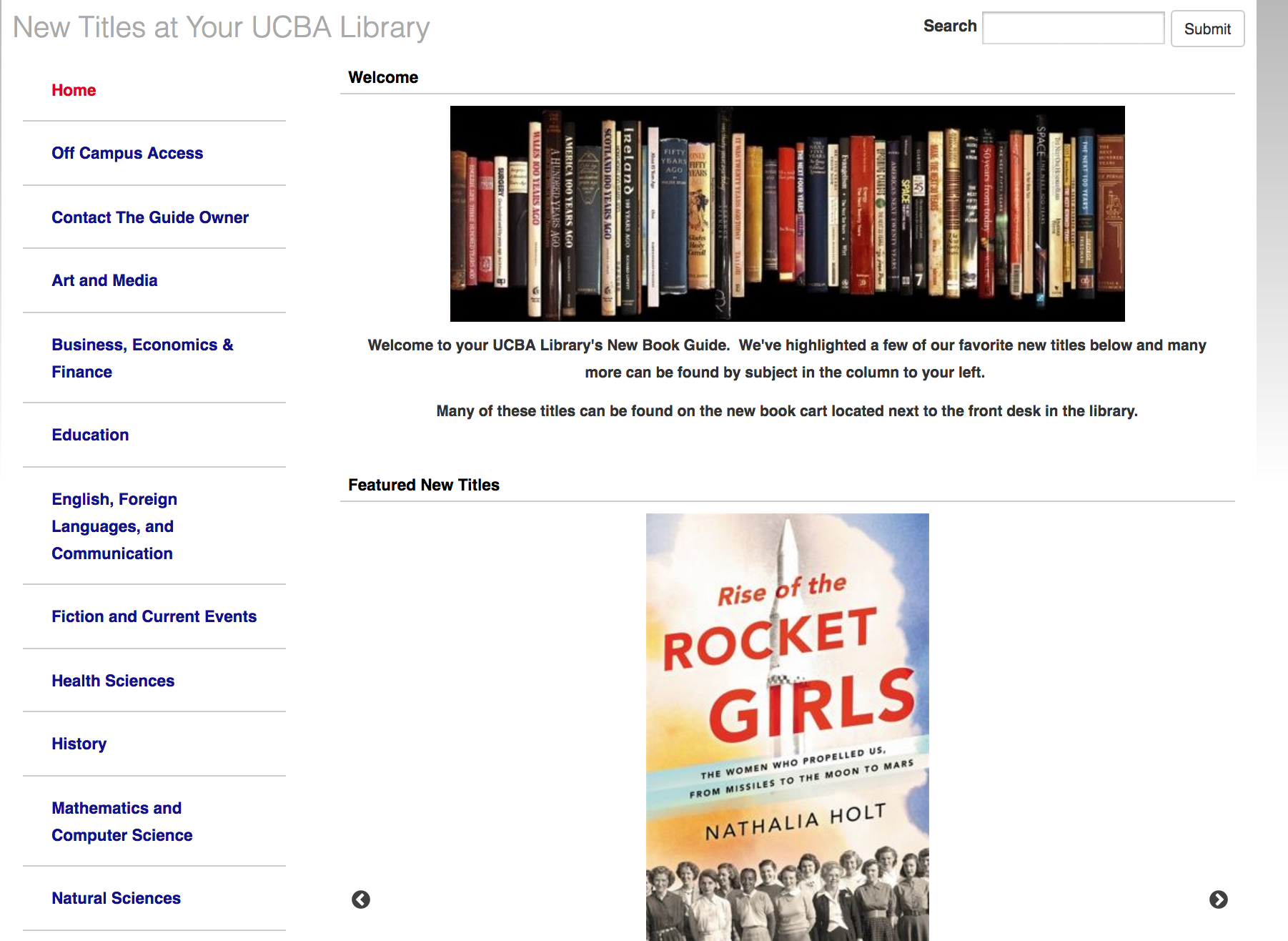We’ve arrived at the space of Pam Adler, UCBA Library’s Public Services Assistant, for this latest edition of From the Desk of… Continue reading
The World’s Finest Cinema Brought to You by Your Library & Kanopy
We are pleased to announce that the University of Cincinnati Libraries has recently introduced a new online video streaming service, Kanopy
With over 26,000 films and more added monthly, Kanopy includes thousands of award-winning documentaries, training films, and indie films. The database includes films from many of the leading producers, including the Criterion Collection, PBS, HBO California Newsreel, BBC, Kino Lorber, New Day Films, The Great Courses, First Run Features, The Video Project, and hundreds more.
Kanopy has an incredible range of films available: from PBS Shakespeare Uncovered Collection, through Food Choices to Art & Copy – viewers can filter subject searches by most popular, subject, supplier, filmmaker and more.
Kanopy’s streaming interface makes it easy to watch, share, discuss and engage with films across campus. Instructors: it’s easy to use Kanopy in your coursework. You can share films, create clips or teaching playlists, and embed them into Blackboard. See the Kanopy homepage for more information or contact library staff for help.
Save the Date! WorldFest Trivia Event at the Library
Digital Humanities Expert to Speak March 6 & 7 in Langsam Library
UC Libraries, in partnership with the College of Arts and Sciences, welcomes visiting scholar Roopika Risam as the next expert in the Digital Humanities Speaker Series, March 6 & 7 in Langsam Library.
Risam, an assistant professor of English at Salem State University, will present a series of talks and hands-on workshops, all free and open to the public, in the Walter C. Langsam Library. Participants are encouraged to come to any or all sessions that are of interest to them and to their work.
Monday, March 6
- Keynote: 11 a.m. to 12:30 p.m. – Who Lives, Who Dies, Who Tells Your Story: The Stakes of Digital Cultural Memory, Langsam 480
- Lunch: (all welcome) – 12:30 to 1:30 p.m., Outside Langsam 462
- Hands-On Session (laptop recommended): 1:30 to 3 p.m. – Archiving Social Justice with Omeka, Langsam 462
Tuesday, March 7
- Session Three: 10 a.m. to 11 a.m. – Digital Labor across Global North and South, Langsam 480
Mozart in the Library
Ever wonder what people are playing while they are practicing the keyboard in Langsam and CCM Libraries? Jay Sinnard, manager of the Student Technology Resources Center, did so he asked one student if he could listen in.
And, because you can’t always be Mozart…
A collaboration between UC Libraries and the College-Conservatory of Music (CCM), the keyboards are open to anyone wanting to play on a first come-first served basis, but bring your own headphone as they are required.
Met Opera on Demand and MGG Online trials concluded
The Met Opera on Demand and MGG Online trials have concluded. Thank you to everyone who has contributed comments and feedback. We hope to be able to make our final decision about full subscriptions very soon. As always, please address any additional comments or questions to: Jenny Doctor (jenny.doctor@uc.edu) or Paul Cauthen (paul.cauthen@uc.edu).
Browse New UCBA Titles Online
The New Titles at Your UCBA Library online guide lists newly acquired books and media by subject. Select titles are highlighted on the homepage along with the ability to search for other titles in the UC Libraries system. Many of the new titles can also be found on the new book cart located next to the front desk in the library.
Check Out the Latest Issue of Source
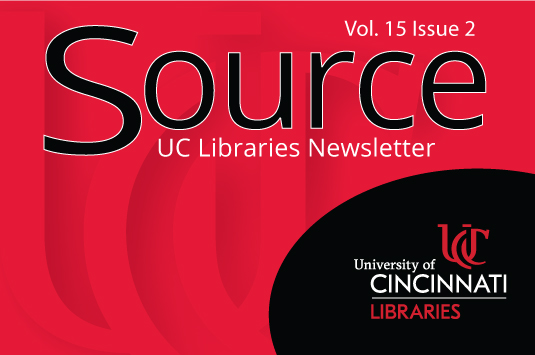
Read Source, the online newsletter, to learn more about the news, events, people and happenings in UC Libraries.
This latest issue of Source includes interviews with Dean Xuemao Wang about creating a Master Plan for library spaces as well as with May Chang about her role in the newly created position of library chief technology officer. Other articles include the announcement of a gift from the John Hauck Foundation for the digitization of Dr. Albert B. Sabin’s lab notebooks, the installation of two new exhibits of World War I illustrated sheet music, a listing of Spring events in UC Libraries, an update on recent staff accomplishments and a donor spotlight of Marjorie Motch. Read these articles and more.
Source is available on the web at http://libapps.libraries.uc.edu/source/ and via e-mail. To receive Source via e-mail, contact melissa.norris@uc.edu to be added to the mailing list.
Inside a Costumer’s Mind: 12 Questions with Cincinnati Shakespeare Company’s Resident Costume Designer, Amanda McGee
By: Sydney Vollmer, ARB Intern
Almost one year ago, Jeremy Dubin, Artistic Associate with at the Cincinnati Shakespeare Company, was kind enough to answer some questions we at the ARB had about the company. After writing our last blog on the costume designs in King Lear, we decided we were curious about what goes on in the mind of a costume designer. So, we went back to the CSC. Resident Costume Designer, Amanda McGee, answered everything we wanted to know. Below is the full copy of the interview with images.
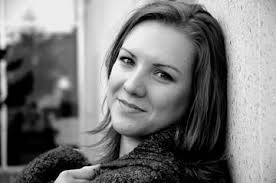
Amanda McGee
UCBA RefWorks Workshop
by Lauren Wahman
The UCBA Library and the UCBA Learning & Teaching Center sponsored a RefWorks workshop on Thursday February 9. Randy Roberts (Langsam Library) brought his roadshow out to UCBA for the first time and we had 12 attendees representing a wide range of disciplines such as Nursing, Business, English, and Biology. This was a great example of libraries collaborating to help faculty learn more about one of our many resources! Thanks again Randy!
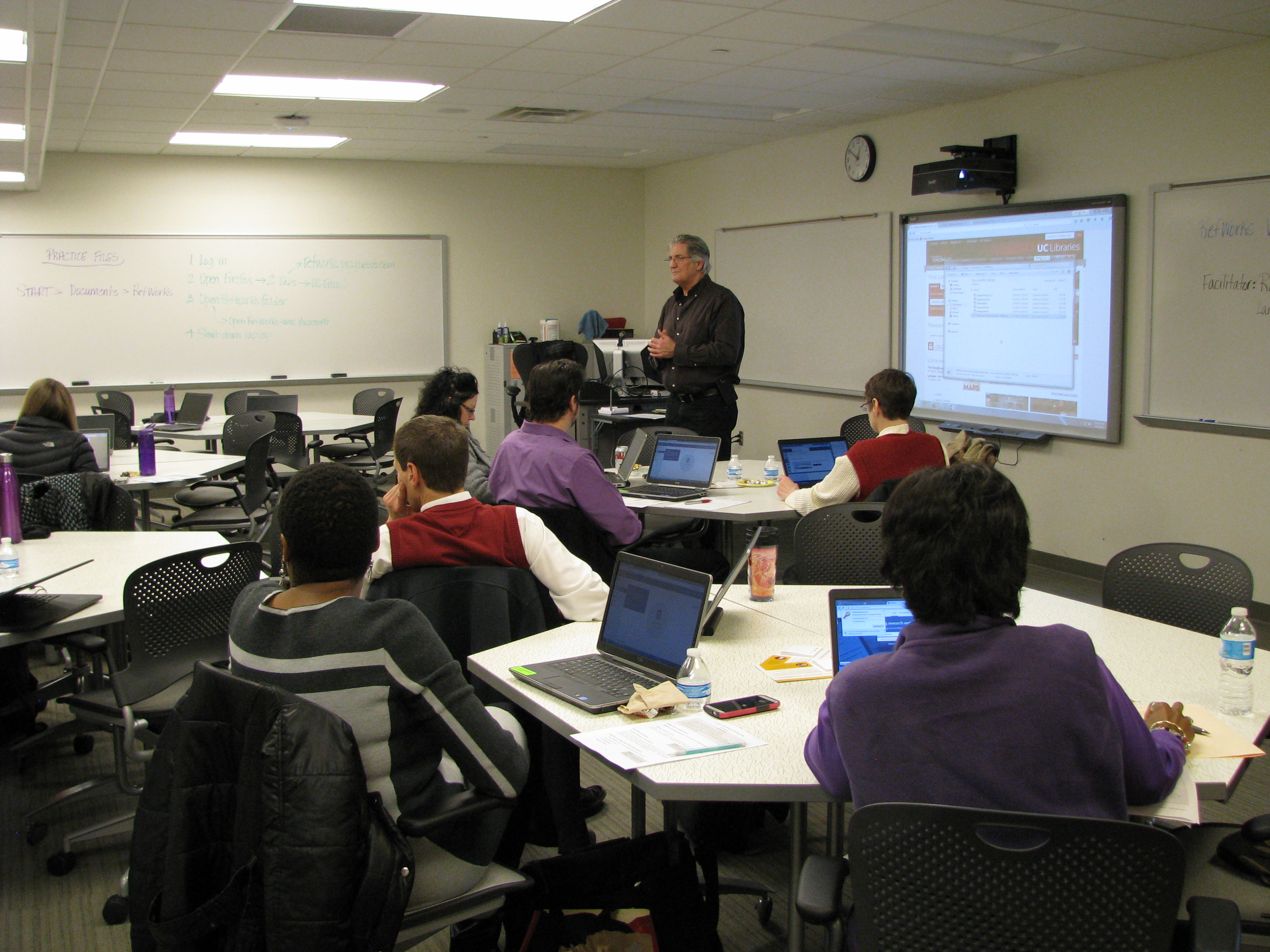
Randy Roberts (Langsam Library) introducing the NEW interface for RefWorks
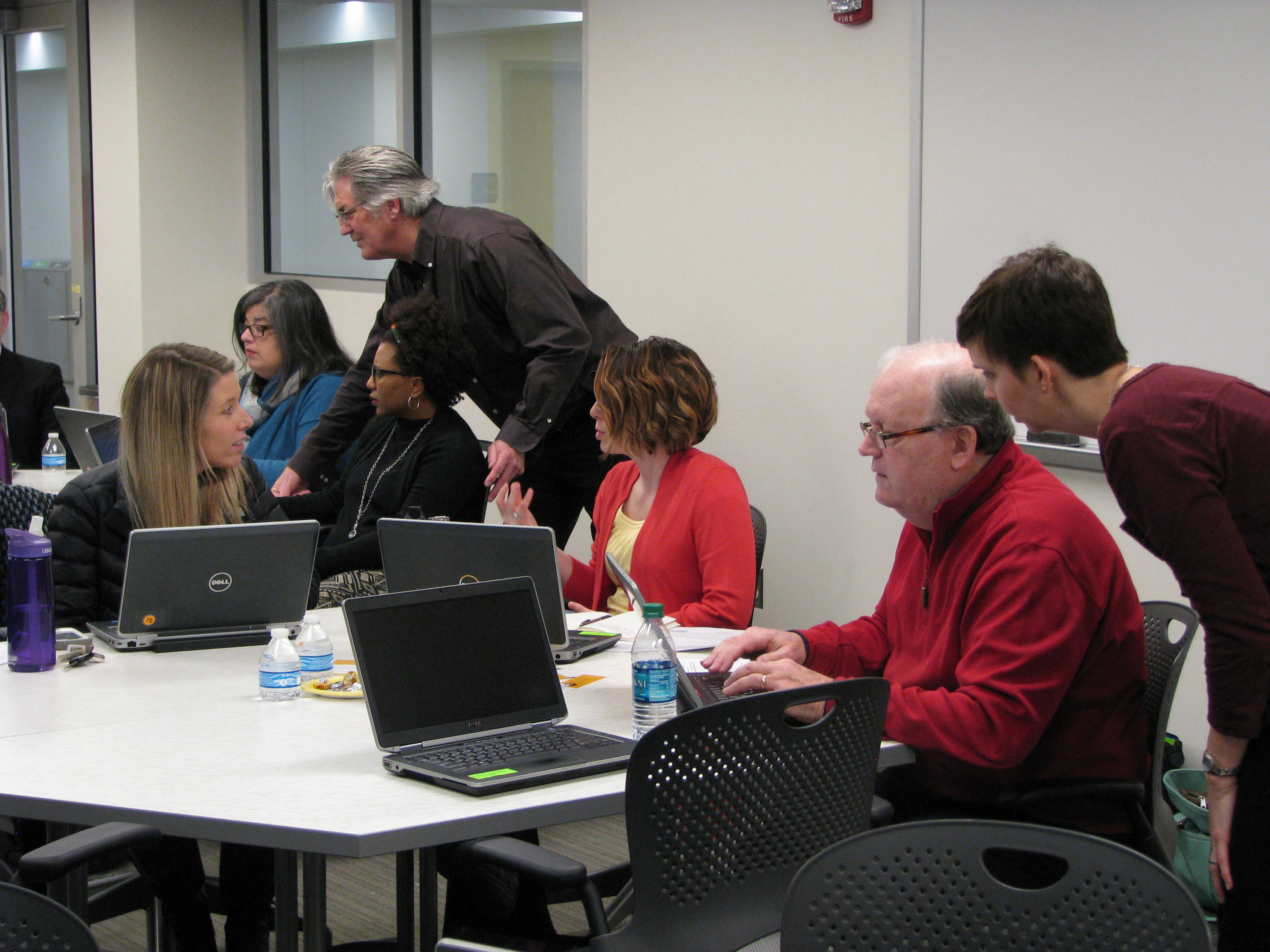
Randy Roberts (Langsam Library) and Lauren Wahman (UCBA Library) providing help to attendees

